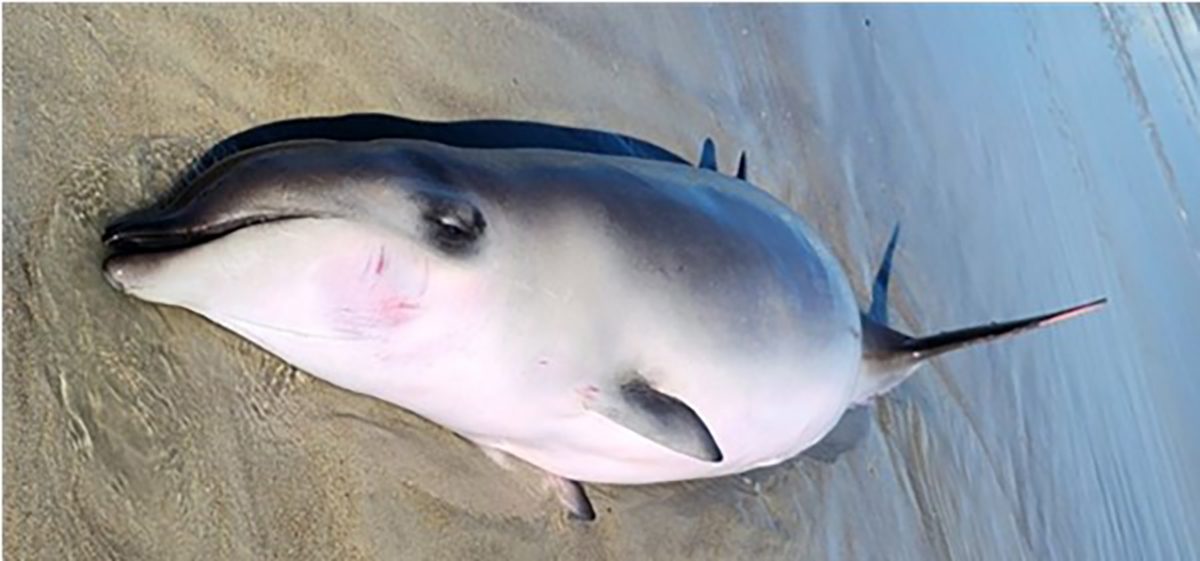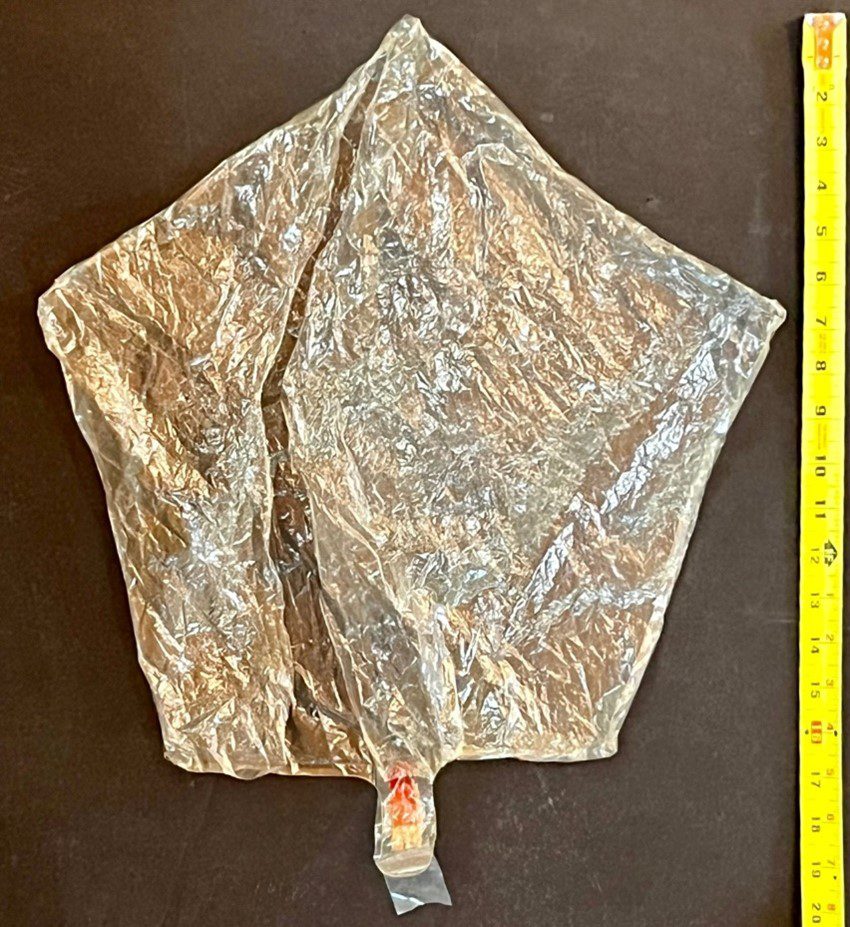
This story has been updated to include omitted partners in the effort.
A whale calf that washed ashore last week on Emerald Isle’s ocean shoreline died from ingesting a plastic balloon.
Supporter Spotlight
Scientists who performed a necropsy on the Gervais’ beaked whale removed a crumpled-up plastic balloon that had obstructed the calf’s gastrointestinal tract, ultimately causing its death, according to a University of North Carolina Wilmington release.
The whale, a nursing, female calf just under 11 feet long, was first spotted by beachgoers in shallow waters, before eventually washing onto the beach and shortly dying thereafter on Oct. 30.
Gervais’ beaked whales typically live several hundred miles offshore at the edge of the continental shelf and beyond.
Marine mammal experts, including those with the UNCW Marine Mammal Stranding Program, veterinarians, and students from various state educational institutions and agencies studied the deceased whale.
UNCW Marine Mammal Stranding Program Director Michael Tift said in a statement that there are a many reasons why marine mammals strand on beaches, including diseases, wounds from other animals, ship or boat strikes, entanglement in fishing gear, and ingestion of human-manufactured products such as plastic.
Supporter Spotlight
“Unfortunately, it is common for us to identify plastic ingestion as the cause of death in these rare deep-diving marine mammals,” Tift said. “Ingestion of these balloons can cause pain, suffering and ultimately the death of many wild animals. It is terribly similar to the ingestion or encounter with plastic straws and other plastic products many have seen cause injury or death in sea turtles and sea birds. I have seen Mylar® balloons in some of the most remote places on the planet and have witnessed their devastating effects on wildlife.”

About 125 marine mammals, including whales, dolphins, porpoises, seals and manatees strand on North Carolina’s beaches every year, according to Tift. The only way to determine a cause of death in these cases is to investigate each one, he stated.
Tift, an assistant professor in the university’s Department of Biology and Marine Biology, encourages lawmakers to consider banning plastic products. He and other members of the network also encourage consumers to consider using biodegradable alternatives to balloons, including paper decorations, flowers or candles.
Consumers who use balloons are asked to deflate them and remove all gases before throwing them away.
The necropsy of the whale was performed at North Carolina State University’s Center for Marine Sciences and Technology, or CMAST and included teams of marine mammal scientists, veterinarians and students from UNCW, NC State’s College of Veterinary Medicine, NC Aquariums, Duke University Marine Laboratory, North Carolina Maritime Museum Bonehenge Whale Center, University of North Carolina Chapel Hill Institute of Marine Sciences and the North Carolina Division of Marine Fisheries.
Marine mammal strandings may be reported by calling the following numbers:
- Outer Banks: 252-455-9654.
- Central coast: 252-241-5119.
- Southern coast: 910-515-7354.







